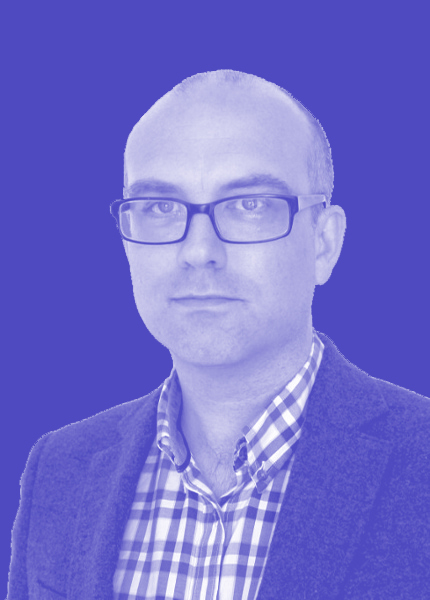It’s been a busy year for Sparck including here on the blog, where there have been more than 50 posts in the course of 2023.
When the leadership team at Sparck started talking about bringing this blog back to life there were a couple of goals:
- To give our people an outlet for their insight and expertise.
- To build a body of useful content for the design community, and our clients.
The former was driven by a sense that we’d got into the habit of sharing fascinating stuff internally, on Slack, but nobody outside the organisation knew about those conversations.
We talk all the time about the importance of working in the open, and learning in public, and wanted to put those principles into practice.
The latter was about sharing knowledge more efficiently. If a contact or client asks a question, the chances are other people are wondering about the same thing.
And it’s easy to assume everyone knows what you know when they don’t. The more we share, the more people talk, and the richer the conversation becomes.
Here’s a round-up of some of the highlights, and the key themes that emerged throughout the year.
Accessibility
At Sparck, we’re all committed to making services as accessible and inclusive as possible – and we spend a lot of time thinking and talking about what that means in practice.
People from across our practices, from user research to service design, have written posts covering various aspects of accessibility.
- Accessible design benefits us all and shouldn't be an afterthought by Karen McIntyre
- What’s your excuse for not putting alt text on images? by Naomi Busuttil
- Inclusive design matters, especially for life-and-death services by Ray Newman
Futures thinking
Matt Mullan is Sparck’s futures thinking expert and has inspired us all with workshops and talks throughout the year.
Futures thinking is about looking at what’s happening right now and reading emerging signals of change in the present day. By anticipating what might happen in the future you can make more informed decisions for your organisation, and for society.
It’s had a particular boost this year as everyone tries to understand what the sudden acceleration of the adoption of artificial intelligence might mean. Matt has run several workshops with clients, and with colleagues at BJSS, on this specific subject.
- Don’t get left behind: why you need to embrace futures thinking
- The basics of futures thinking: present and future are intertwined
- Designing futures: where design meets futures thinking
Crisis communications
Content design to support crisis communications is an evolving service at Sparck, led by Miriam Vaswani. She has a background in PR and corporate communications. That’s given her hands-on experience of communicating in crises.
More recently, she’s been thinking about how content design principles might apply to those situations.
Content design is about helping people get the information they need when they need it. How do we deliver that when people are in danger, under stress?
- How content governance makes you more resilient in a crisis
- Improve your crisis response with human-centred design
- Content-first prototyping: prioritising what service users need
Culture and people
The best way for people to understand if Sparck is the right place for them is for us to be open and honest about our culture.
That can feel risky for some organisations but we’ve committed to letting people say what they want to say, how they want to say it.
The results have been among some of our most popular posts because they’re humans speaking to other humans.
- What about the humans who practice human-centred design? by Harriet de Wet
- How we used design thinking to boost team wellbeing by Mel Galliwade
- What it’s like to be a design professional with anxiety disorder by James Medd
- How get into the flow can unlock your potential by Azeem Butt
Careers in design
Whenever we offer careers advice, or insight into our recruitment process, we get a strong response. In a competitive jobs market, people are hungry for practical advice.
How do I get into design? How do I switch careers? How do I progress?
Two sub-theme here are squiggly careers, which many people at Sparck have had, and the Academy, which is our way of offering entry-level roles.
- How different career paths can teach you design thinking by Stephanie Weise
- What we’re looking for when interview for a job at Sparck by Miriam Vaswani
- The empowering experience of the Sparck Academy by Chloe Wybrant
User-centred design
Putting users at the centre of the design process is the central principle of our work.
Our user research practice is vital to delivering this, giving our teams insight into what people really need from services, and how the products we design could work better.
On the flipside, we also collect examples of ‘deceptive patterns’ and poor design, to help us understand what not to do.
- Service design 2.0: from marketing and maps to future-proof strategy by Amalia Robinson
- Research led, not research supported: our role in user-centred design by Kyle Brown
- Death to deceptive patterns: legislating for user-centred design by Ray Newman
Design thinking tools and techniques
One of the most popular topics of conversation on Sparck’s various Slack channels is tools, tricks and techniques.
From workshop templates to AI tools that can save us time, we’re always sharing our latest discoveries.
We also like to debate the past, present and future of design thinking itself, which sometimes feels under threat.
- How Lego can make your sprint retrospectives seriously fun by Julia Silva
- A key design tool at 20 – double diamonds are forever? by Terry Dixon
- Why I take my work home – and you should too by Paul Bailey
Don’t miss any posts on the Sparck blog
Follow us on LinkedIn or bookmark the blog to make sure you don’t miss any of our posts in 2024.
There’s going to be more on all the subjects above, plus some insight into the healthcare and education sectors in particular.



